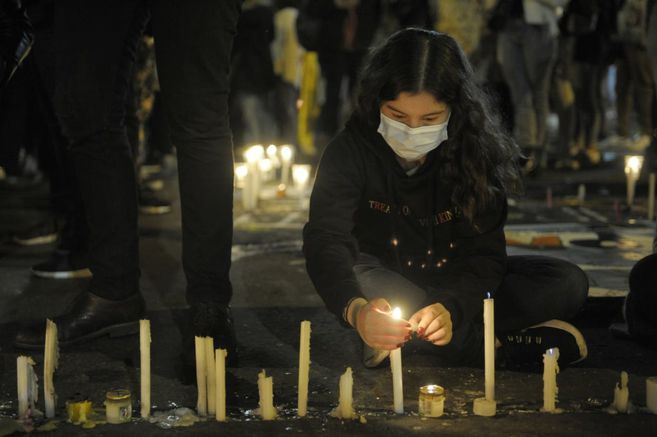We live in a period of history where we commonly hear, “My God, we are in crisis!”. The gestures and tone accompanying this phrase are clearly negative and even defeatist. The Covid 19 pandemic, accelerated climate change and acts of violence in many countries such as Colombia, Israel-Palestine, Eastern European countries, and other nations in Asia and Africa confirm this.
We easily identify the word “crisis” with negativity, defeat and death. But if we look closely at the word “crisis” and the progress humanity has made, we easily realise that this negativism has no solid basis. Let us analyse it, then, from the law of evolution, from science, from humanism.
The word crisis etymologically comes from the Greek verb “krinein”, which means “to judge in order to make a decision”. The noun “krisis” means, then, judgement or decision. For many scholars, the crisis is a process of transformation in which the old system cannot be maintained any longer. The crisis is something that breaks it down and, as it breaks down, it has to be analysed. Crisis forces us to think, to analyse, to reflect, to make alternative decisions. Critical situations are not necessarily the end of a series of bad decisions. They can also become the beginning of a new way of dealing with a situation or problem. For example, in medicine, the term refers to an abrupt and profound change in health, which separates life from death, for better or for worse. Thus, a health crisis can be a magnificent opportunity for healing.
In this article, we advocate the meaning of “crisis” as an opportunity for personal, social, business, national, global improvement. Therefore, the crisis can become a “magnificent opportunity” after analysing the rupture or difficult situation, facing life in new ways, with renewed perspectives, with better-channelled energy. Crisis, then, becomes an opportunity for hope, for a new life, for renewing paths that bear better fruit.
Basically, this is what well-known people wanted to affirm. Albert Einstein said: “It is in crisis that we know the best of ourselves because without crisis every wind is a caress”; President John F. Kennedy said: “In a crisis, be aware of the danger, but recognise the opportunity”, and the coach of the Colombian national football team, Pacho Maturana, said: “To lose is to win a little”.
Dr Martha Salazar Ospina of the National Open and Distance University of Colombia (UNAD) often says: “Crises are a natural moment in life. When we understand that neither joy nor sadness is a permanent state, we can face the different moments we experience with more peace of mind. The same goes for crises.
HOW DO WE REACT TO CRISES?
- Let us keep in mind a simple principle of psychology: according to Jean Piaget, intelligence is the adaptation of the organism to the environment. And adaptation is the dynamic balance between assimilation (I make the information received my own) and accommodation (I transform or adapt what comes from outside with my own elements). Therefore, if I am intelligent in my life, I am always in a continuous process of assimilating (inwards) and accommodating (outwards). That is why adaptation is the first lesson that crises leave in those who suffer them.
- According to Charles Darwin, “the species that survive are not the strongest, nor the fastest, nor the most intelligent, but those that adapt best to change”. Therefore, when faced with a crisis, treat it immediately as a magnificent opportunity to find “new scenarios for life and progress”.
- Give time to time, i.e. before making decisions, study and analyse the crisis, identify the sources and interpretations, weigh the possible solutions before giving an open, positive and engaging solution.
- That is why, methodologically, says the aforementioned professor Matilde Salazar Ospina, you should:
- Live the crisis, not deny it. Don’t think that if you deny it, it ceases to exist; on the contrary, it will continue to hide, bothering you and not allowing you to make free choices.
- Listen to it and analyse it. If you keep your peace and carefully analyse the causes of the crisis, you can take positive steps to resolve it.
- Take responsibility, not blame the other person. Blaming others is irresponsible. In our human actions, we always have a responsibility because we have freedom or free will.
- Change habits. Habits that do not produce good and transforming fruits, we must change them. It is difficult, but perseverance leads to success.
Fr. José Rafael Prada Ramírez, C.Ss.R., Ph.D. in Psychology
The full article is publish in Spanish (original)






